Swollen gums is a common condition and causes pain and discomfort. This condition not only affects eating and chewing but also affects sleep and daily activities. However, do not be subjective because swollen gums in the lower jaw are caused by many reasons. Early detection and treatment will control symptoms and prevent disease progression. To understand more about swollen gums in the lower jaw, please join My Auris to learn about the following article.
Signs of swollen gums in the lower jaw
The gums are part of the oral mucosa. The gums surround the alveolar bone and teeth, forming soft and pale pink connective tissue. A healthy gum tissue will be firm and hug the tooth root tightly, without bleeding, inflammation or pus accumulation.
Swollen gums are a sign of many oral diseases, a warning sign that oral health needs attention. Normally, swollen gums can be easily recognized through some of the following signs:
- Red, inflamed gums: healthy gums are usually light pink around the tooth roots, but if swollen, red gums can be seen, which can be dark red or purple red.
- Pus and fluid retention: the gums are no longer firmly attached to the tooth roots, accompanied by fluid and pus retention, sometimes with edema and congestion.
- Teeth around the gums are sore: when the gums are swollen, it can easily cause pain and the surrounding teeth are also affected. Sometimes accompanied by a sore throat and discomfort when eating.
- Bad odor in the mouth: swollen gums also cause bad breath because bacteria overgrow in plaque on teeth.
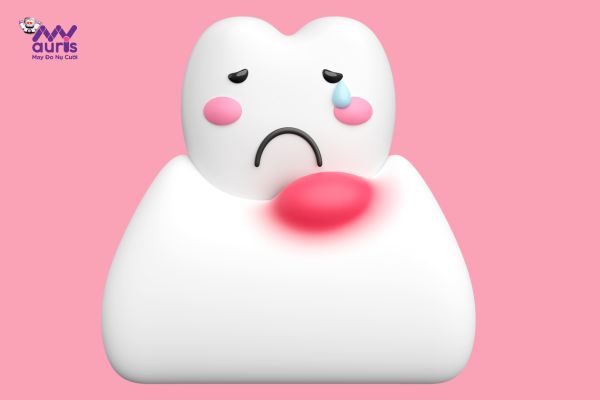
The above signs can be easily recognized and observed if they appear. However, depending on each person, the signs are different. Most importantly, as soon as new signs appear and the condition is still mild, people should go see a dentist to be examined, find the cause and have a timely treatment plan. This helps protect oral health and prevents diseases from progressing, causing many dangerous complications.
Causes of swollen gums in the lower jaw
Swollen gums on the innermost teeth is not a rare condition and can be caused by many reasons. Also depending on the cause of swollen gums, doctors have appropriate remedies and treatments:
Growing wisdom teeth
Wisdom teeth are the last molars, also known as teeth number 8, that will grow when people reach adulthood from 17-25 years old. When it grows, this tooth will grow next to tooth number 7 on the jaw. However, large teeth grow at the time the jaw bone is fully developed, there is not enough room left, easily causing gum swelling. Along with swollen gums, it also causes a lot of pain, lasting a long time, affecting the health and daily life of teething people.
Gingivitis
Gingivitis is a form of infection that only occurs at the location where wisdom teeth grow in the upper or lower jaw. Because this gum covers part of the tooth, when the tooth grows, it will make the condition more serious, with the gums being red, swollen and painful.
In addition, gingivitis also creates gaps that make it easy for food and plaque to accumulate, creating conditions for bacteria to grow and cause more infection. From there, the gums become more swollen and painful.
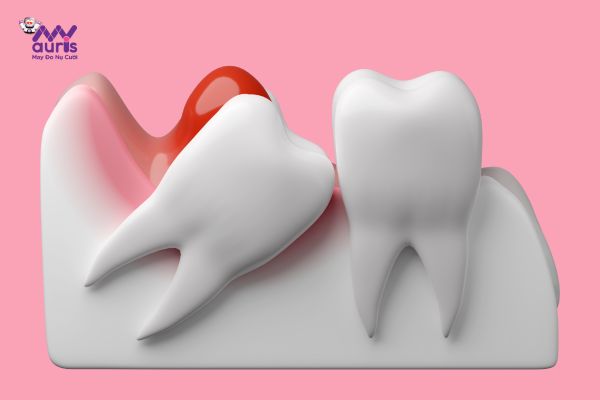
Tooth decay
Swollen gums in the lower jaw can be caused by tooth decay. Tooth decay bacteria penetrate the tooth pulp, not only causing toothache but also swelling of the gums.
Gingivitis, periodontitis
Too much plaque or tartar accumulation that is not cleaned and scraped off for a long time will create an ideal environment for bacteria to grow. From there, the gums are susceptible to infection, swelling and pain.
Due to diet and oral hygiene
A diet that regularly eats a lot of hard foods can also cause scratches in the gum area, affecting the gums, causing swelling and pain, or regularly eating hot spicy foods that cause heat in the body, leading to heat in the body, easily causing swollen and painful gums.
Habits of brushing teeth too hard, hard bristles, using toothpicks or sharp objects to floss teeth,… also cause damage to the gum area, making the gums easily swollen.
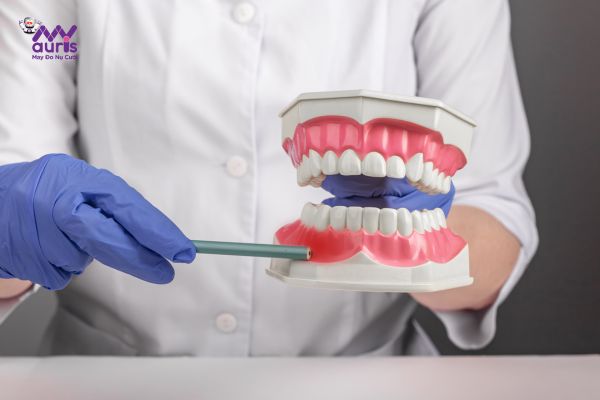
The above causes are all Common causes of swollen gums. If the condition lasts for more than 2-3 days and shows no signs of improvement, you should see a doctor immediately for examination and examination. This helps people find the cause and intervene for timely treatment.
Treatment of swollen gums in the same jaw. below
Depending on the cause and signs of swollen gums, doctors offer different treatment methods:
Treatment of the cause
- Wisdom tooth extraction: If wisdom teeth grow up causing pain, prolonged swelling causing gingivitis or due to misaligned or impacted teeth, etc., the doctor will prescribe tooth extraction to overcome the swollen gums.
- Scaling: if the teeth have not been scaled for a long time, causing too much calculus to build up, causing swollen gums, the doctor will Clean tartar to prevent infection.
- Use medicine: If gum swelling is caused by body heat, heat in the body can use medicine to inhibit pain and kill bacteria.
- Tooth filling: with caution. In case of mild tooth decay, the doctor will clean and fill the cavity to prevent bacteria from continuing to attack.
- Ceramic crown: in case of larger decay, the tooth filling cannot be treated effectively, porcelain crown helps fix and protect the tooth.
- Root canal treatment: if the bacteria causing tooth decay has penetrated deep into the pulp, root canal treatment will be required to prevent the bacteria from attacking other teeth.
- Deep tooth extraction: a tooth with severe decay that cannot be saved will require extraction to protect the entire jaw.
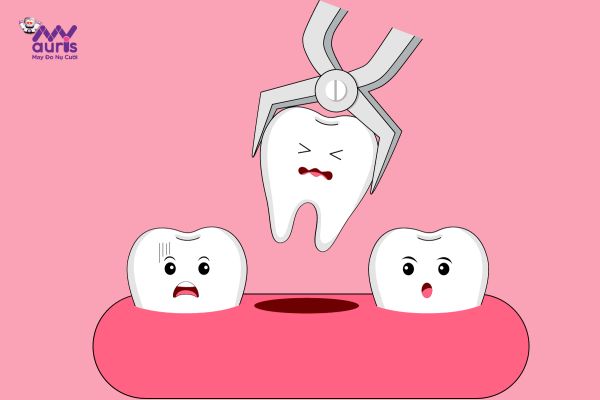
Treatment of symptoms
In addition to the doctor’s treatment regimen, people with swollen and painful gums can also apply a number of methods. Ways to relieve pain and soothe gums at home include:
- Use a cold compress
- Brush your teeth thoroughly, brush your teeth 2-3 times a day, use correct and gentle techniques
- Use dental floss and mouthwash to clean between teeth and places that a toothbrush cannot reach.
- Drink plenty of water
- A nutritious diet, limit eating foods that are too hot, too cold, spicy, and irritating to the gums.
- Regular scaling
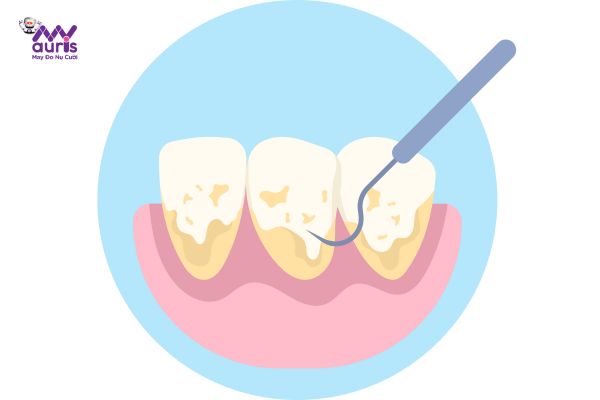
Hopefully the shares in the article about swollen gums in the lower jaw help people better understand the condition. This condition is common so it can help people gain more experience in care, oral hygiene and timely examination. If you still have concerns, please contact My Auris Dental immediately for more detailed advice and answers.
Anh Thy





